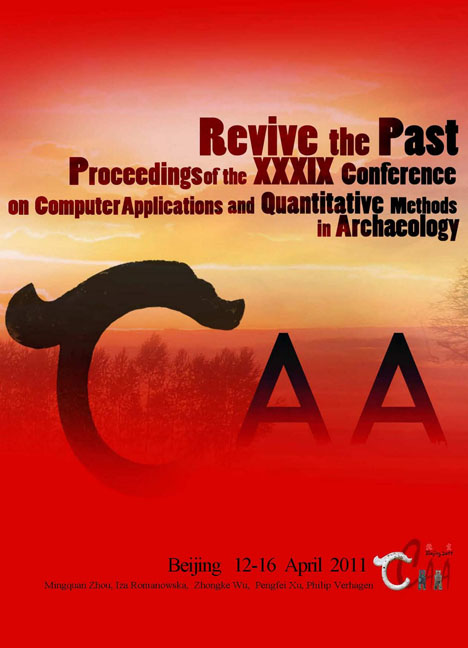 Revive the Past
Revive the Past Event-based Archaeological Registration Principles
Published online by Cambridge University Press: 23 June 2021
Summary
Abstract:
Over the course of the last decade, Aarhus University has been developing a GIS data structure combined with a series of procedures for excavation documentation which facilitates the use of a more efficient digital approach to excavation practices. The new procedures are aimed at ensuring the proper relation of data, uniformity in classification and inclusion of interpretations. Moreover, new registration concepts and classes are introduced in order to properly structure and qualify excavation data for the digital platform. For example, the concept of drawings is replaced by Documentation Events and Data Collections, which introduce a historical dimension of data in recording practices, and therefore makes it possible to distinguish between original data, interpretations, and the various combinations thereof as well as preventing the accumulation of redundant and derived data.
Key Words: Event-based, Data Management, Documentation Principles
Event-based Archaeological Registration Principles
Over the course of the past decades, considerable advances in software and hardware capabilities for managing archaeological field data have spawned a steady migration from traditional analogue, paper-based recording principles towards an increasingly digital approach. In Danish archaeology the inherent problem remains the fact that very little effort has been made to truly embrace the possibilities of these new, digital media and to change the documentation principles and strategies accordingly. Instead, much of what we see are digital documentation strategies which are largely dominated by routines and concepts that refer to a more traditional paper-based registration and the framework and limitations which are thereby implied. This limits the use of new digital recording techniques, complex data types and advanced analysis capabilities. It is only when it comes to the digitization of excavation plans that a considerable effort has been made to make use of these new technologies, resulting in an extensive amount of vector data. However, the implementation of digital data management systems for these GIS-data, and archaeological data in general, is still underdeveloped considering its potential.
Aarhus University has been developing a GIS data structure combined with a series of procedures for excavation documentation which facilitates the use of a more efficient digital approach to excavation practices. The new procedures aim at ensuring the proper relation of data, uniformity in classification and inclusion of interpretations. Moreover, new registration concepts and classes are introduced in order to properly structure and qualify excavation data for the digital platform.
- Type
- Chapter
- Information
- Revive the PastProceedings of the 39th Conference of Computer Applications and Quantitative Methods in Archaeology, pp. 209 - 216Publisher: Amsterdam University PressPrint publication year: 2012


